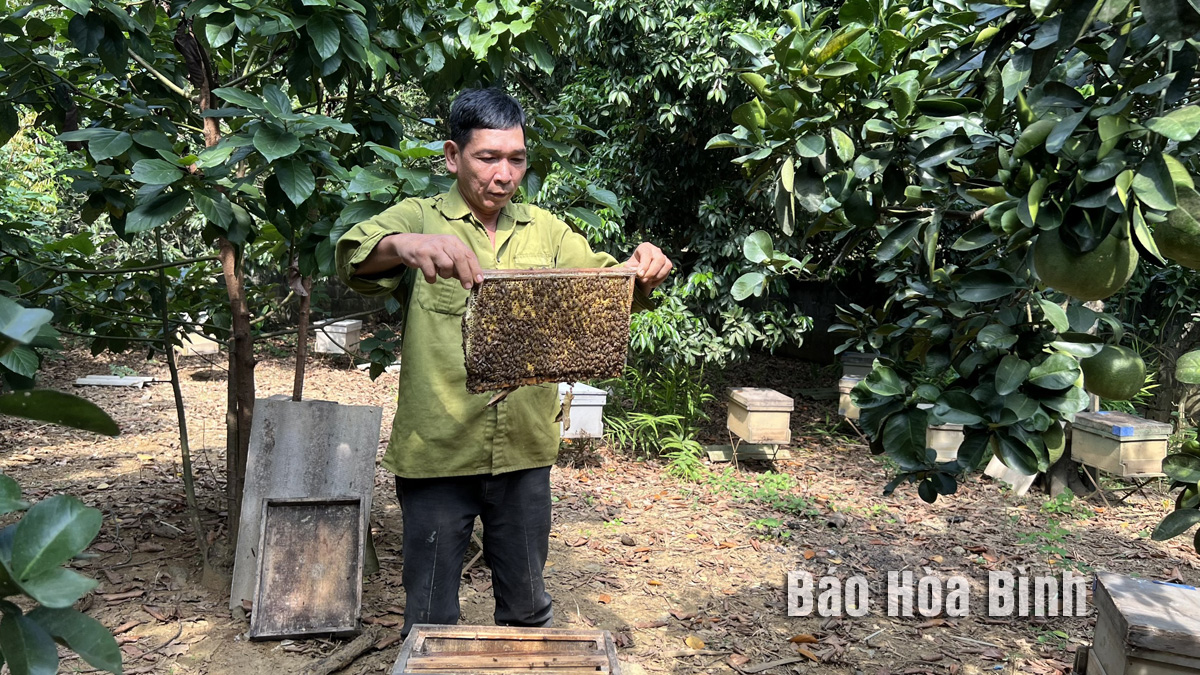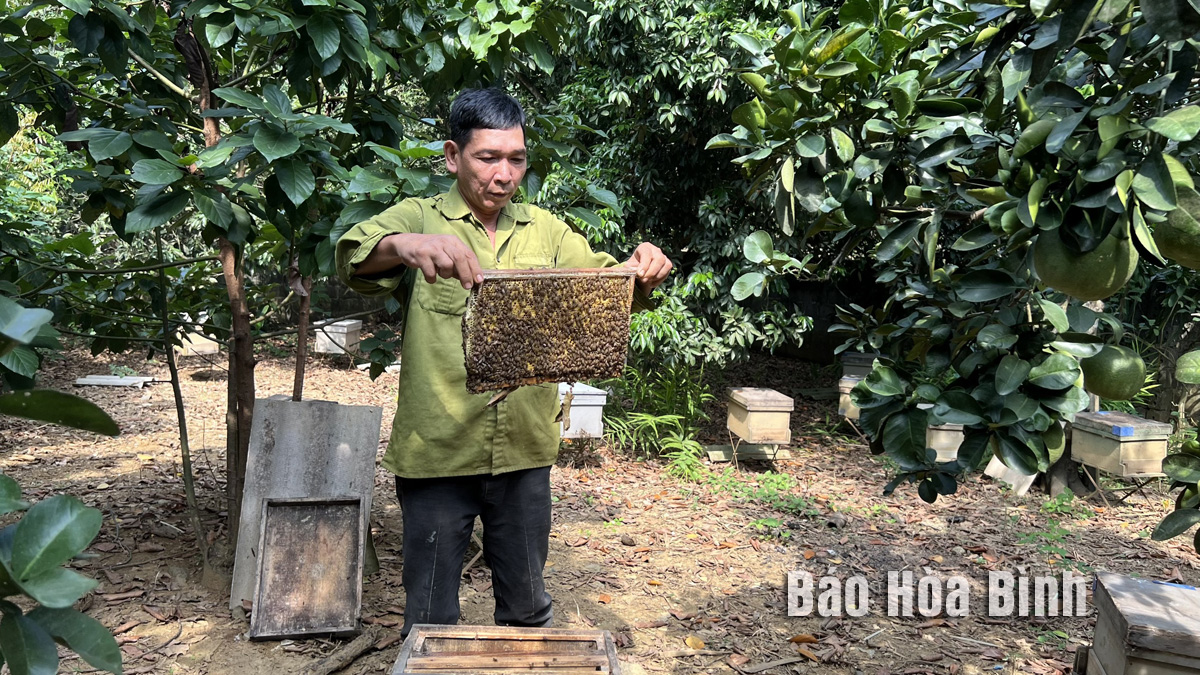
Measures have been taken in Hung Thi commune, Lac Thuy district to eliminate hunger, reduce poverty and increase the income of residents. Currently, the commune has an average income of 51.1 million VND ($2,120 USD) per capita per year and its poverty rate is just 18%.

Do Minh Hong in Hung Thi commune, Lac Thuy district gets an annual
income of 60-70 million VND from honey production.
Chairman of the commune People’s Committee Luong Van Dong said that local
authorities called on and instructed local people to boost production, and
select crops and animals in line with local strengths and potential. The commune also implemented credit programmes, and improved
infrastructure, particularly roads and irrigation works to support production,
he said.
The commune is home to 971 households with nearly 4,000 people.
In its economic structure, agricultural production and forestry make up a major
proportion with traditional crops such as rice, corn, cassava and sugarcane. To boost agricultural production, the commune has implemented
measures to increase the crops’ productivity and cultivated those with high
economic value.
It also offered farmers training courses on applying science and
technology to production and changing farming techniques. Local farmers were
also encouraged to restructure crops toward commodity production.
The commune now has 11 cooperatives that produce and purchase
agricultural and livestock products. It has a honey beekeeping club with 18
members who are raising more than 800 bee colonies, supplying over 11 tonnes of
honey to the market each year.
In 2023, the commune completed dossiers to apply for the provincial recognition
of two products - honey and lemongrass essential oil - as One Commune-One
Product (OCOP) products.
Moreover, the commune has 61 ha of rice, 102 ha of corn, 180 ha
of vegetables, and three fruit farms. It also has 877 buffaloes and cows, 1,700
pigs, 26,000 poultry, and 754 goats. In addition, industrial and handicraft
establishments are encouraged to expand and create jobs for many rural workers.
Two food and livestock companies based in the commune now provide jobs for
nearly 300 workers.
To support people in developing production, the commune has implemented
preferential credit programmes, focused on infrastructure and roads, and
engaged people in dredging canals. With the motto "the State and the people work
together", the commune has built infrastructure projects and cemented
rural roads with a total cost of 9.7 billion VND (402,000 USD).
According to data from the Hoa Binh Provincial Party Committee, the industrial production index for the first six months of 2025 is estimated to have increased by 20% compared to the same period last year. This marks the highest year-on-year growth rate for this period since 2020.
In the first six months of 2025, Hoa Binh province’s export turnover was estimated at 1.145 billion USD, marking an 18.11% increase compared to the same period in 2024. Import turnover was estimated at $ 804 million, a 17.15% increase, which helped the province maintain a positive trade balance.
The lives of the ethnic minority farmers in Tan Lac district have gradually improved thanks to the new directions in agricultural production. This is a testament to the collective strength fostered through the professional associations and groups implemented by various levels of the district’s Farmers’ Union.
With the motto the "product quality comes first,” after nearly one year of establishment and operation, Muong village’s Clean Food Agricultural and Commercial Cooperative, located in Cau Hamlet, Hung Son Commune (Kim Boi district), has launched reputable, high-quality agricultural products to the market that are well-received by consumers. The products such as Muong village’s pork sausage, salt-cured chicken, and salt-cured pork hocks have gradually carved out a place in the market and they are on the path to obtaining the OCOP certification.
In the past, the phrase "bumper harvest, rock-bottom prices" was a familiar refrain for Vietnamese farmers engaged in fragmented, small-scale agriculture. But today, a new spirit is emerging across rural areas of Hoa Binh province - one of collaboration, organisation, and collective economic models that provide a stable foundation for production.
Maintaining growing area codes and packing facility codes in accordance with regulations is a mandatory requirement for agricultural products to be eligible for export. Recently, the Department of Agriculture and Environment of Hoa Binh province has intensified technical supervision of designated farming areas and packing facilities to safeguard the "green passport" that enables its products to access international markets.



